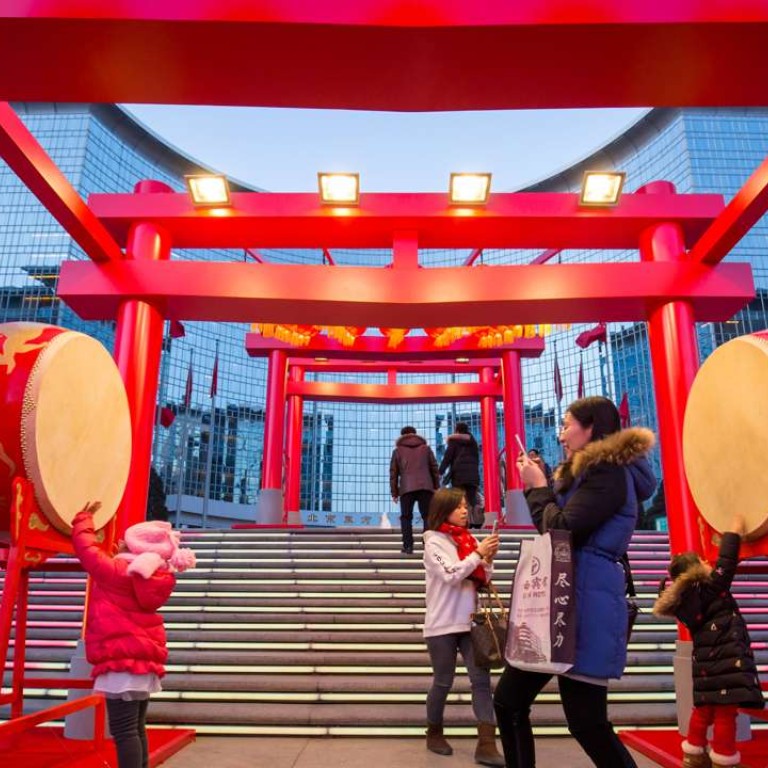
Hui Xian Reit chief insists its Beijing Oriental Plaza still captivates after 17 years
Malls can cohabit with e-commerce, as long as they keeps updating and adapting to latest fashions and consumption trends, says Hong Kong-born Tom Cheung Ling-fung
Despite the slowing economy and impact of e-commerce, chief executive of Hui Xian Real Estate Investment Trust (Reit), which owns several commercial properties across the mainland, said he retains faith in old-fashioned retail properties.
Hui Xian Reit, the first yuan-denominated REIT listed in Hong Kong, and partly owned by Cheung Kong Property Holdings, owns Beijing Oriental Plaza, one of the capital’s largest and most iconic commercial complexes.
The plaza comprises a mall, office towers, serviced apartments and the Grand Hyatt Beijing. It also owns Metropolitan Oriental Plaza in Chongqing and Sofitel Shenyang Lido.
“I still hold strong confidence in the traditional business,” said Tom Cheung Ling-fung, executive director and chief executive of Hui Xian Asset Management, which runs Hui Xian Reit, “as long as you keep updating and adapting.”

“Consumer pattern changes, but human beings have been social animals for thousands of years. We still need to go out and interact with people,” he added.
In the first half of 2016, Hui Xian posted a 8.1 per cent increase in amount available for distribution to shareholders of 805 million yuan. Net property income rose 6.3 per cent to 1.1 billion yuan. Annualised distribution yield rose to 9.1 per cent, up from 7.9 per cent in 2015.
In a sign of unceasing confidence, Adidas, for example, doubled its store space in the Beijing Oriental Plaza in the past year sellings hundreds of sneakers daily during the opening week, he said.
The plaza’s large retail zone was transformed into open space featuring a number of pop up stores and eateries.
The increasingly dominant e-commerce sector has not dented the popularity of the mall, Cheung insisted, as its prime-location, access to two subway stations, a torrent of tourists and office workers in its office section has kept flooding the 17-year old shopping centre.
Cheung said one strength of the mall is that it does not have a dominant tenant type, and various stores attracts shoppers of varying ages and income, which has allowed the property to generate a “stable income” over the years.
The mall’s passing rent, or rent payable at a particular point in time, stood at 1,258 yuan per square metre in the first-half, while average occupancy rate is 96 per cent, according to earlier report. Cheung said the occupancy rate has now risen to 99 per cent.
People here can spend a hundred or a million yuan on a wristwatch. We have a balanced tenant mix. Whatever it is, be it luxury, fast-fashion, or restaurant, each category has a few well-performing brands that prop up our business
“People here can spend a hundred or a million yuan on a wristwatch,” he said. “We have a balanced tenant mix. Whatever it is, be it luxury, fast-fashion, or restaurant, each category has a few well-performing brands that prop up our business.”
In terms of expansion plan, Cheung said his team has never ceased looking at projects in first- and second-tier cities. In January, Hui Xian announced it agreed to buy a 100 per cent stake in a Chongqing hotel and 69 per cent interest in a Chengdu hotel.
“An important reason for our prudence is because we are aiming for long-term operation. There must be room for enhancement after our team’s entry. When you target long-term, you would be conservative,” he said.

